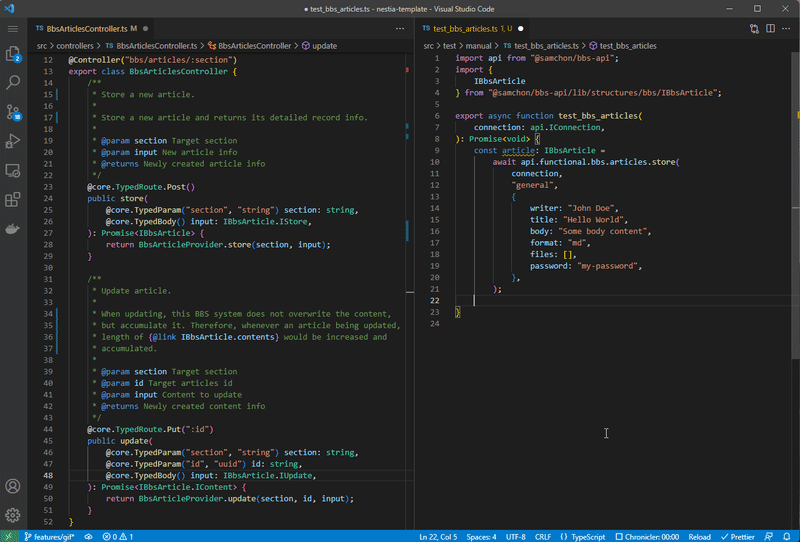
Research
Security News
Threat Actor Exposes Playbook for Exploiting npm to Build Blockchain-Powered Botnets
A threat actor's playbook for exploiting the npm ecosystem was exposed on the dark web, detailing how to build a blockchain-powered botnet.
@nestia/fetcher
Advanced tools

Nestia is a set of helper libraries for NestJS, supporting below features:
@nestia/core:
@nestia/sdk:
@nestia/e2e: Test program utilizing e2e test functions@nestia/benchmark: Benchmark program using e2e test functions@nestia/migrate: OpenAPI generator from Swagger to NestJS/SDK@nestia/editor: Swagger-UI with Online TypeScript Editornestia: Just CLI (command line interface) tool[!NOTE]
- Only one line required, with pure TypeScript type
- Enhance performance 30x up
- Runtime validator is 20,000x faster than
class-validator- JSON serialization is 200x faster than
class-transformer- Software Development Kit

Left is NestJS server code, and right is client (frontend) code utilizing SDK
Thanks for your support.
Your donation would encourage nestia development.
Check out the document in the website:
FAQs
Fetcher library of Nestia SDK
The npm package @nestia/fetcher receives a total of 8,625 weekly downloads. As such, @nestia/fetcher popularity was classified as popular.
We found that @nestia/fetcher demonstrated a healthy version release cadence and project activity because the last version was released less than a year ago. It has 1 open source maintainer collaborating on the project.
Did you know?

Socket for GitHub automatically highlights issues in each pull request and monitors the health of all your open source dependencies. Discover the contents of your packages and block harmful activity before you install or update your dependencies.

Research
Security News
A threat actor's playbook for exploiting the npm ecosystem was exposed on the dark web, detailing how to build a blockchain-powered botnet.

Security News
NVD’s backlog surpasses 20,000 CVEs as analysis slows and NIST announces new system updates to address ongoing delays.

Security News
Research
A malicious npm package disguised as a WhatsApp client is exploiting authentication flows with a remote kill switch to exfiltrate data and destroy files.